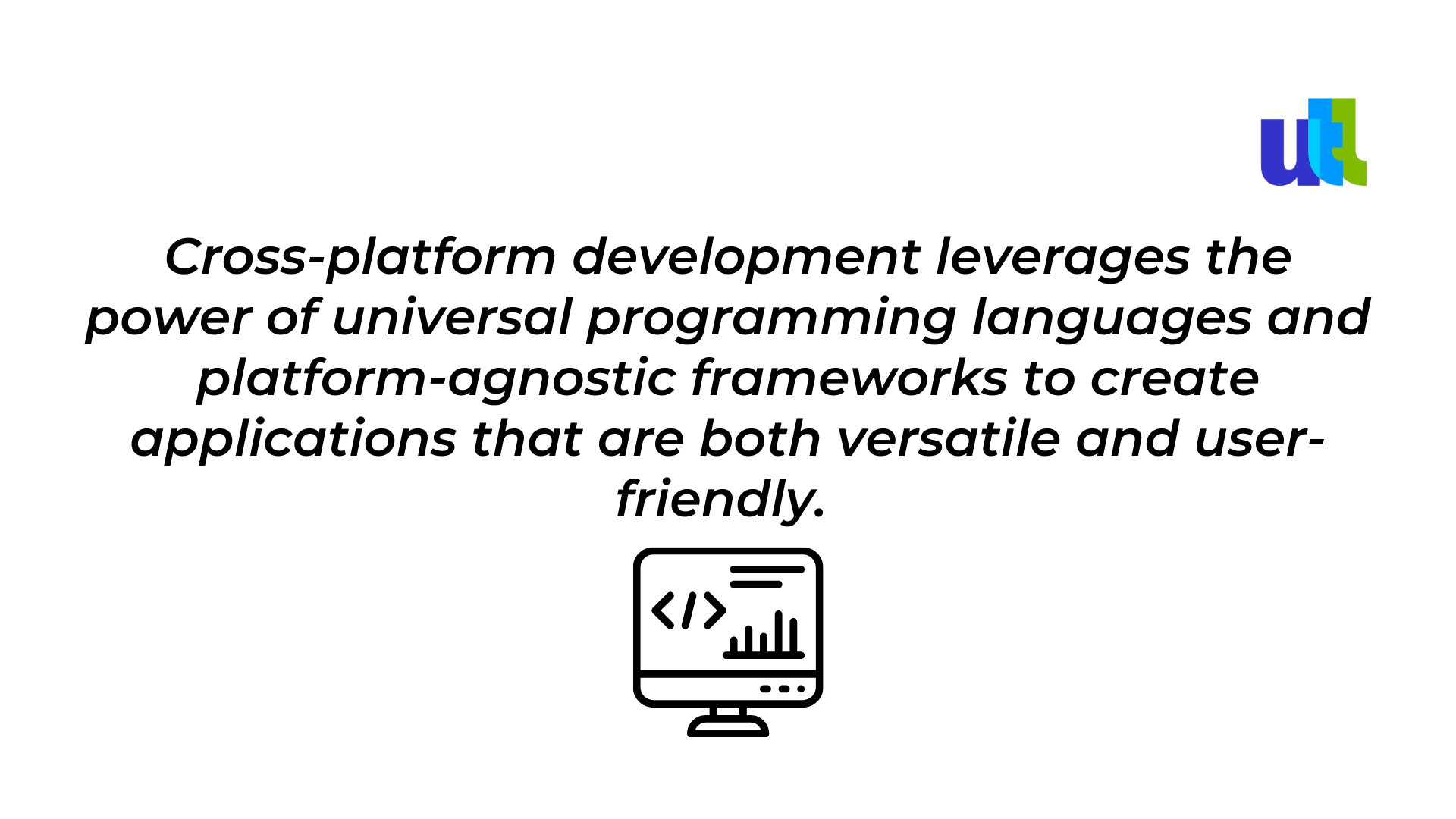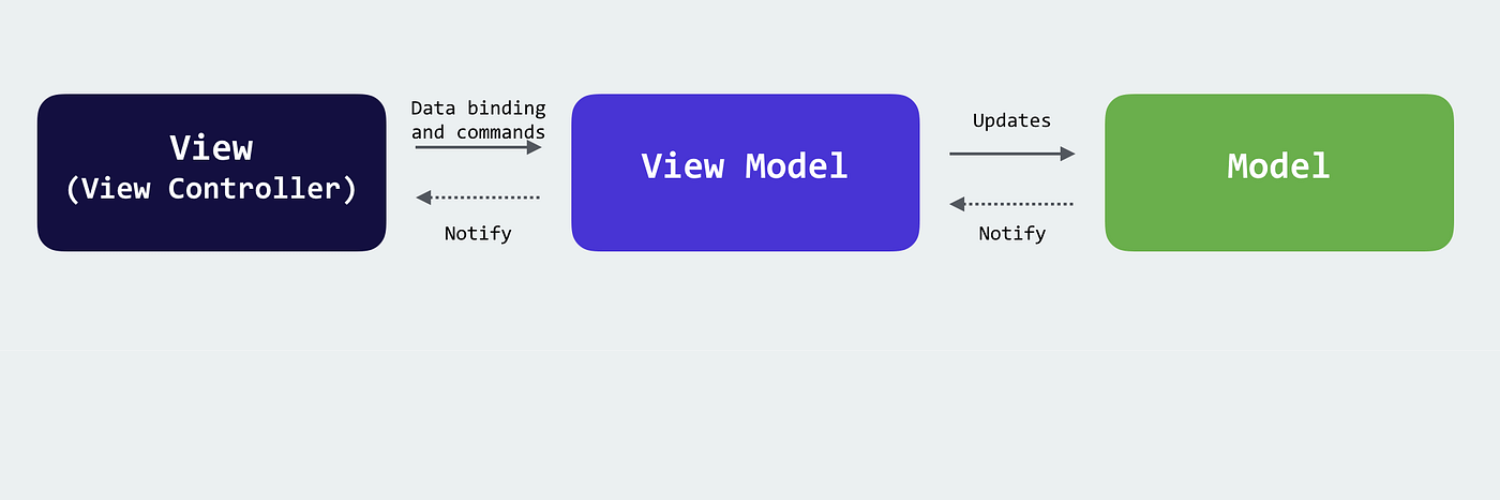In today's fast-paced and technologically driven business world, the need for efficient, versatile, and cost-effective software solutions is more pressing than ever. As businesses strive to maximize their reach and streamline operations, the concept of cross-platform software emerges as a game-changer. This approach to software development is not just a trend, but a strategic imperative for companies looking to thrive in a competitive marketplace.
Harnessing the power of cross-platform software for business success
Imagine developing a software application that seamlessly operates across various platforms such as iOS, Android, Windows, and macOS. This is the core of cross-platform software development - a strategy that has revolutionized the way businesses approach product development. Traditionally, applications were designed to function on a single platform, requiring separate development efforts for each operating system. This approach was not only resource-intensive but also limited the application’s reach. Cross-platform development overcome it by enabling the creation of software that runs efficiently on multiple platforms using a unified codebase.

By doing so, businesses can significantly reduce development time and costs, while simultaneously broadening their audience reach. This method isn't just about developing a single application for multiple operating systems; it's about reimagining how software can be more adaptable, accessible, and impactful in a digital-first world.
When choosing a cross-platform development framework, you should consider the following factors:
- Performance: Some cross-platform development frameworks can have a negative impact on the performance of your apps. It is important to choose a framework that offers good performance on all of the platforms that you are targeting.
- Features: Different cross-platform development frameworks offer different features. It is important to choose a framework that has the features that you need to develop your app.
- Ease of use: Some cross-platform development frameworks are easier to use than others. If you are new to cross-platform development, it is important to choose a framework that is easy to learn and use.
Once you have chosen a cross-platform development framework, you can start developing your app. Be sure to test your app thoroughly on all of the platforms that you are targeting before you deploy it to production.
As we delve deeper into the intricacies of cross-platform software, it becomes clear that this approach is not just a technical solution, but a strategic tool for businesses aiming to establish a robust digital presence across diverse platforms.
Why cross-platform over native development?
Choosing cross-platform development over native app development presents a multitude of advantages for businesses, particularly when balancing customer reach, budget constraints, and operational efficiency. When assigning an app for your brand, understanding your customer's preferred platform is crucial. Opting for cross-platform applications becomes a strategic choice, especially under budget limitations. This approach streamlines the development process, requiring only one codebase for all updates and modifications, leading to cost savings and reduced error margins across different platforms.
Key advantages of embracing cross-platform custom software development include reduced testing time and expenses, as one unified version requires far less testing compared to multiple native versions. This not only lowers costs but also accelerates the product's time to market (TMM), a critical factor in today’s competitive business landscape. Furthermore, cross-platform apps offer easier customization and feature additions through single codebase edits, eliminating the need to replicate changes across multiple native applications. This unified development approach not only saves time but also significantly reduces overall project costs.
As businesses consider leveraging the power of cross-platform development, it is essential to align this decision with their specific goals, target audience, and budget. Cross-platform technology, capable of creating applications for both iOS and Android, eliminates the need for dual development efforts, offering a cost-effective and efficient solution. While there are some drawbacks to this method, the substantial benefits it offers make it a compelling choice for businesses looking to optimize their software development strategy and enhance their market presence.
Tools and frameworks for cross-platform development
In the realm of cross-platform mobile development, the choice of frameworks and tools is crucial to streamline development processes and ensure consistent user experiences across diverse platforms. Below are some of the leading frameworks that have become integral in developing cross-platform mobile applications:
- Flutter: Flutter is renowned for its swift performance and visually appealing user interfaces. It boasts a comprehensive set of pre-built widgets, making it the go-to choice for creating visually rich applications. Based on Dart, an object-oriented programming language, Flutter also supports rapid development through features like Hot Reload, and its built-in graphics engine simplifies the creation of uniform interfaces across different platforms.
- React native: A brainchild of Facebook, React Native leverages JavaScript and React to deliver native-like app experiences. This open-source technology allows for the integration of native modules and libraries, providing a seamless and responsive user interface. It's particularly well-suited for projects prioritizing a sophisticated UI, with the added advantage of writing modules in languages like Objective-C, Swift, or Java.
- Xamarin: Part of the Microsoft family, Xamarin is an ideal solution for those deeply invested in the Microsoft ecosystem. It uses C# and .NET for building apps, enabling developers to reuse about 90% of their code for different platforms. Xamarin stands out for its ability to address hardware compatibility issues through specific plugins and APIs, ensuring a native-like user experience.
- PhoneGap/Cordova: Adobe's PhoneGap, also known as Apache Cordova, empowers developers to create cross-platform apps using familiar web technologies like HTML, CSS, and JavaScript. It's particularly advantageous for projects that aim to leverage web development skills to build mobile applications.

Developers must weigh the features and capabilities of each framework against their project needs to select the most suitable one, ensuring the successful execution of their cross-platform development strategy.
Advantages and disadvantages of cross-platform development
Cross-platform development offers a blend of advantages and challenges that businesses must navigate to optimize their software strategies effectively.
Advantages of cross-platform development:
- Cost efficiency: Developing a single codebase for multiple platforms can significantly cut costs, making it an ideal choice for budget-conscious businesses and startups.
- Time savings: The shared codebase approach allows simultaneous development for various platforms, reducing overall development time compared to building separate native apps.
- Broader reach: Cross-platform apps can access a wider audience across different platforms, enhancing user acquisition and market visibility.
- Code reusability: Reusing code across platforms streamlines the development process, ensures consistent functionality, and minimizes errors.
- Simplified maintenance: Managing and updating a single codebase is more straightforward than handling multiple native codebases, saving time and resources.
- Quicker market entry: The accelerated development cycle of cross-platform apps enables businesses to launch their products faster, gaining a competitive advantage.
- Rich plugin and library access: Many cross-platform frameworks offer extensive plugins and libraries, expanding app functionality without heavy custom development.
Challenges of cross-platform development and solutions:
- Performance limitations: Despite improvements, cross-platform apps may not offer the same performance as native apps, especially for high-demand applications.
- Platform-specific features: Implementing unique features for each platform using a shared codebase can be challenging.
- Learning curve: Newcomers to cross-platform development may need time to adapt to different frameworks and tools.
- Framework dependency: The success of cross-platform apps depends on the continuous support and updates of the chosen frameworks.
- Limited UI customization: Designing highly customized user interfaces can be more challenging in cross-platform development than in native environments.
- Consistent user experience: Achieving a cohesive design across different platforms and screen sizes is crucial but complex.
In conclusion, while cross-platform development offers many benefits, including cost and time efficiency, and a wider market reach, it also presents specific challenges like performance limitations and the need for specialized solutions for platform-specific features. Understanding these pros and cons is crucial in making informed decisions about the right development approach for your business.
Tips and future of cross-platform development
In the dynamic world of mobile app development, cross-platform strategies play a crucial role. It's essential to ensure consistency across all platforms, which might involve using a unified design system or a User Interface library. Be aware that abstraction layers could potentially slow down your app; counter this by optimizing code for performance through techniques like caching, minimizing network requests, and maintaining clean, maintainable code. Testing on various devices and platforms is vital to understand how the User Experience shifts between them.
As we look towards the future, cross-platform development is set to evolve alongside technological advancements. Here are some key trends to consider:
- Artificial intelligence (AI): AI tools are becoming increasingly influential in cross-platform development, aiding in testing, personalization, and overall app functionality.
- Internet of things (IoT): Integrating IoT with cross-platform solutions can enhance User Experience, enabling the creation of sophisticated applications that interact with a numerous of devices.
- Low-code and no-code platforms: These platforms simplify app development, making it quicker and more accessible by reducing the need for extensive coding.
- Cloud technologies: Utilizing cloud technologies in cross-platform development can improve scalability, security, and maintenance, focusing more on app features and functionalities.
Looking ahead, cross-platform development will likely see greater integration with diverse tools and platforms, aiming to deliver seamless user experiences and more efficient development processes to a wider audience.
Cross-platform mobile development is not just a trend; it's a significant player in the app development industry. Its effectiveness hinges not just on the chosen framework but also on the developers' expertise. Staying well-informed of advancements in cross-platform technologies is crucial, as emerging features and opportunities will continually enhance app capabilities.
In summary, cross-platform development offers a potent combination of cost-efficiency, time savings, broader market reach, and code reusability, positioning itself as a formidable alternative to traditional native development. By selecting the right framework, understanding its strengths and limitations, and harnessing the power of cross-platform development, businesses can create exceptional apps that perform superbly across multiple platforms, providing users with seamless experiences.
As you embark on your cross-platform development journey, it's essential to have a clear vision, a strategic approach, and a team of proficient developers.

Why opt for cross-platform mobile app development?
The decision to adopt cross-platform mobile app development comes with a multitude of compelling advantages for both business strategists and development teams. This approach serves as a dual-benefit strategy, aligning with the objectives of business-focused teams as well as those handling the technical aspects of development. A skilled software development agency with a proven track record in launching successful applications can seamlessly navigate the particulars of creating cross-platform mobile applications.
Concluding insights
The popularity of cross-platform applications stems from their ability to simplify development efforts by denying the need for separate apps for different platforms. These applications boast the capability to function seamlessly across various devices. Furthermore, choosing the right cross-platform framework is critical for developing universally compatible applications. The selection of the appropriate framework hinges on the specific needs of your business and the requirements of your application. It is advisable to seek guidance from an experienced and knowledgeable expert.
For free consultation on cross-platform software, click here.
----------------------------------------------------------------------------------------------
View the full presentation:
WRITTEN BY
Milda Butkeviciute
2023-11-21














































































































































































